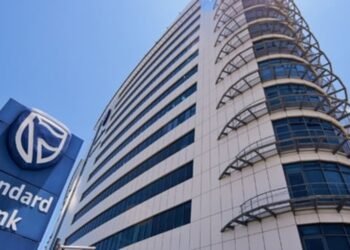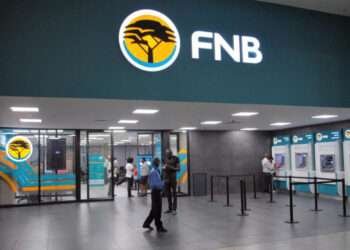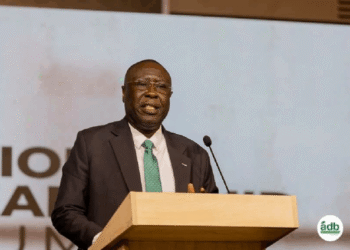The Chief Executive Officer of the Ghana Association of Bankers (GAB), Mr. John Awuah has expressed concerns about the likely loss of appetite of banks’ lending to various sectors of the economy, if the 5% clean-up levy is passed by parliament.
He made these remarks on the back of government’s proposal to introduce a 5% clean-up levy on banks. Meanwhile, the proposal is before parliament to undergo scrutiny and further passage into law if it so merits.
Moreover, in the recent MPC press statement, the Bank of Ghana indicated that:
“Loan loss provisions grew sharply by 62.2%, significantly higher than the 6.5% a year ago, reflecting continued elevated credit risks.
“Non-Performing Loans ratio (NPLs) increased slightly to 15.3% in February 2021 from 13.8% in February 2020. [However], in the Credit Conditions Survey, banks expect an increase in demand for credit and are signalling an ease in credit stance over the next two months.”
Reacting to this statement, Mr. John Awuah advanced that the NPL ratio of banks has been a lingering issue. However, it has seen a downward trend in the last couple of years, from 20% to a little above 10%, and that is good for the sector, he opined.
That notwithstanding, he noted that the risk of impairment has heightened due to two major issues. The first pertains to issues of loan impairment. And also, the second; the fact that banks now take a very conservative and prudent view in assessing risks and impairment issues.
He affirmed that, as an industry, banks have taken a step to ease their credit stance and want to contribute to the recovery process. Albeit, the financial sector clean-up levy has the tendency to slow down this process.
Banks upbeat in supporting recovery process
Speaking with the Vaultz News, he maintained that the banking industry has assumed a positive stance on its role in contributing to the recovery of the economy.
Therefore, while banks are cognizant of ensuring a prudent and conservative view in their assessment of risks, they are also mindful of their role in supporting the various sectors of the economy to bounce back.
“…As an industry, we have taken a very positive view of our role in the economic recovery process. We [banking industry] have a decision to make; whether to be part of the problem or to be part of the solution. And banks have decided to stay on the side of being part of the solution.
“So, even in the heat of the pandemic last year, between March and December of 2020, banks provided new loans, [up to] in excess of GHS14billion and also restructured loans to sectors that were significantly impacted by the pandemic.
“…Several other sectors that had financial exposures with the banks amounting to in excess of GHS4billion [underwent] restructuring. And also, in line with the regulatory measures that the Central Bank took, banks also reduced their lending rate to up to 350 basis points. This resulted in savings of about GHS194 million in funds that would have come to the banks as interest income. But as a result of the lending rate reduction, [it] was left in the pocket of our [banks’] customers.”
Financial Sector clean-up levy to reduce Bank lending appetite
This notwithstanding, he averred that while banks are taking a positive stance to contribute to the economic recovery process, the levy is unlikely to encourage banks to contribute more to this cause.
He noted that since the announcement of the levy, there have been series of engagements with the government. However, there is yet to be positive feedback from the government.
“We’ve been talking… But we are where we are. As we speak, we haven’t had any positive movement in the direction of the other side [government]. But, we keep engaging, we keep talking, hoping that because of the potential negative consequences of the levy, maybe, policymakers will take a second look.”
Nonetheless, there is still more opportunities for a change to be effected, as legislation for the levy is still pending, he indicated.
READ ALSO: Foreign Currency Deposits up 20.2% in February 2021























